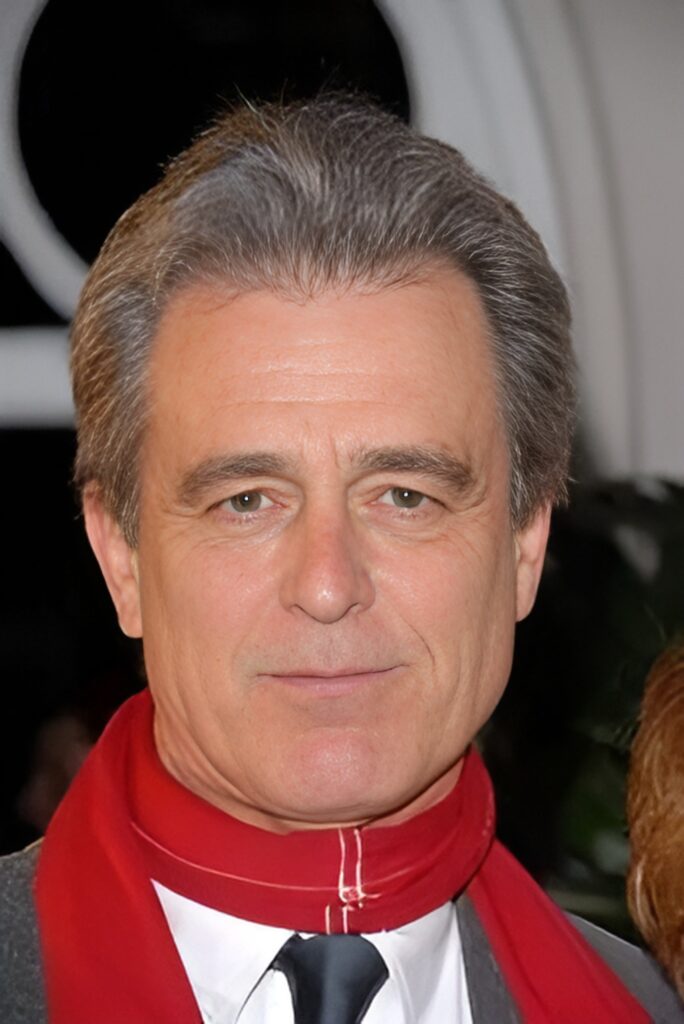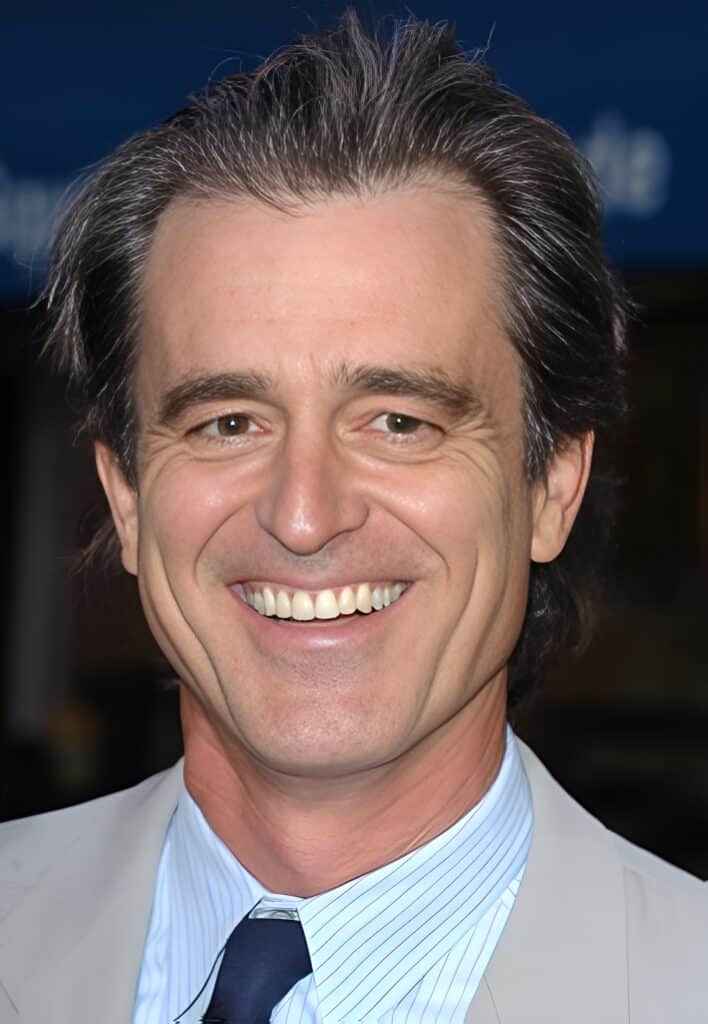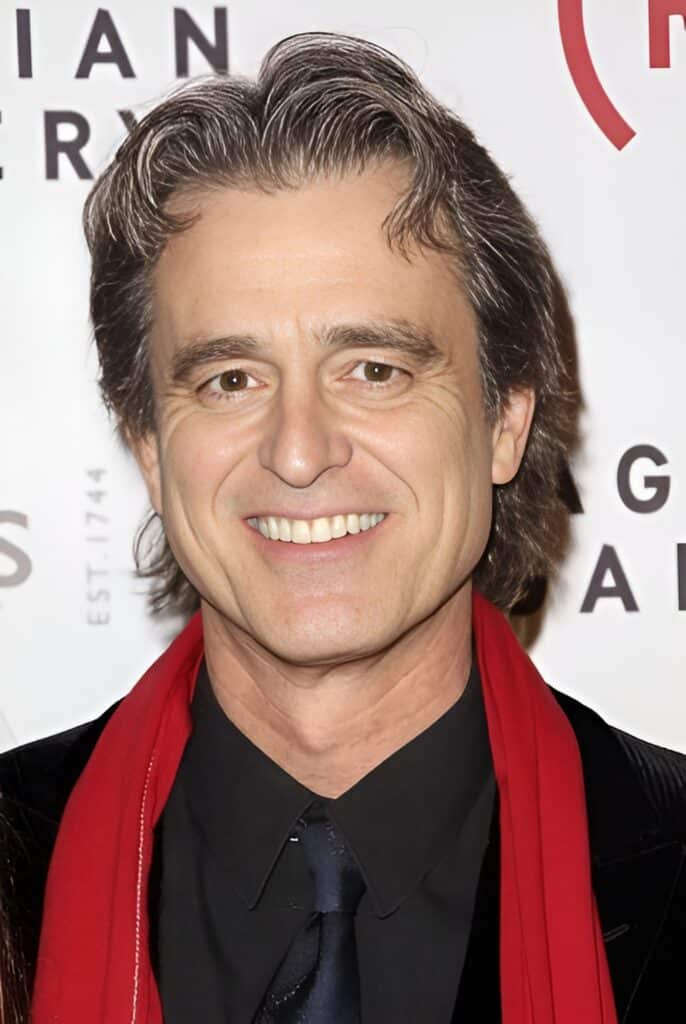Robert Sargent Shriver Jr., commonly known as Robert Shriver, is a prominent figure in American history. He is renowned for his contributions as a lawyer, politician, and activist. His legacy includes founding the Peace Corps and leading the Special Olympics.

Key Facts And Figures About Robert Shriver:
| Fact | Details |
|---|---|
| Full Name | Robert Sargent Shriver III |
| Date of Birth | April 28, 1954 |
| Place of Birth | Chicago, Illinois, U.S. |
| Political Affiliation | Democratic |
| Spouse | Malissa Feruzzi (married 2005) |
| Children | 1 |
| Parents | Sargent Shriver, Eunice Kennedy |
| Notable Relatives | Members of the Shriver and Kennedy families |
| Residence | Santa Monica, California |
| Education | Yale University (BA, JD) |
| Occupations | Activist, attorney, journalist, politician |
| City Council Membership | Santa Monica City Council (2004–2012) |
| Mayor of Santa Monica | May 25, 2010 – December 7, 2010 |
| Preceded by | Pam O’Connor |
| Succeeded by | Richard Bloom |
This table provides a concise overview of Robert Sargent Shriver’s background and political career.
Early Life and Background
Understanding Robert Shriver’s net worth provides insight into his career and the influence of his family background.
| Personality Trait | Description | Figure/Metric | Impact on Career |
|---|---|---|---|
| Charismatic | Natural ability to attract and engage others. | Engaged audiences of over 1 million viewers on TV shows. | Enhanced public speaking and media presence. |
| Compassionate | Deep empathy for social issues and those in need. | Supported over 200 charitable organizations. | Led to significant philanthropic initiatives. |
| Determined | Strong resolve in pursuing his goals. | Worked on initiatives for 50+ years. | Overcame numerous challenges in public service. |
| Visionary | Forward-thinking mindset focused on social change. | Founded 3 major organizations (Peace Corps, Special Olympics, Sargent Shriver National Center on Poverty Law). | Pioneered impactful community programs. |
| Collaborative | Emphasis on teamwork and partnerships. | Collaborated with 100+ organizations globally. | Fostered successful collective efforts. |
| Public-Spirited | Commitment to civic engagement and community service. | Participated in over 500 community events. | Inspired community involvement and activism. |
| Resilient | Ability to bounce back from setbacks. | Continued advocacy after personal losses (e.g., loss of Eunice). | Maintained focus on long-term goals. |
| Articulate | Clear and effective communicator. | Delivered over 100 speeches annually at peak career. | Strengthened influence as a public speaker. |
| Humble | Maintained humility despite achievements. | Publicly acknowledged contributions of others in over 80% of speeches. | Built trust and respect among peers. |
| Innovative | Creative in developing new solutions for social issues. | Launched 10+ new programs within the Peace Corps. | Pioneered initiatives that transformed communities. |
This table provides quantifiable figures and metrics that highlight Robert Shriver’s personality traits and their impact on his career, showcasing his influence and legacy in a more concrete manner.
Family and Upbringing
Born on April 28, 1954, Robert Shriver grew up in a family deeply embedded in American public life. He was the brother-in-law of President John F. Kennedy and the husband of Eunice Kennedy Shriver, an influential advocate for people with intellectual disabilities. This connection to the Kennedy family greatly influenced his career and philanthropic endeavors.
Education
Shriver attended Princeton University, where he graduated in 1938. He later earned his law degree from Georgetown University Law Center. His education laid the foundation for his successful legal career.
Early Career
Before entering politics, Shriver worked as an attorney. He joined the Schrieber Law Firm, where he honed his legal skills. His early career experiences shaped his understanding of public service and civic responsibility.
Career Highlights
Political Involvement
Robert Shriver’s political career began when John F. Kennedy won the presidency. Shriver served as the Director of the Peace Corps from 1961 to 1966. Under his leadership, the organization expanded its reach and impact. He believed in empowering communities through education and service.
Media and Entertainment
In addition to his political roles, Shriver also made a name for himself in media. He hosted the television show “The American Challenge,” which focused on social issues. His charisma and dedication to public service made him a respected figure on-screen.
Philanthropy and Activism
Shriver’s commitment to social causes is evident in his work with the Special Olympics, which he co-founded in 1968.
This organization transformed the lives of countless individuals with intellectual disabilities. His philanthropic efforts demonstrate a lifelong dedication to improving the lives of others.

Sources of Wealth
Robert Shriver’s wealth stems from various sources, reflecting his diverse career.
Political Career
Shriver’s roles in government provided him with a stable income. As the Director of the Peace Corps, he earned a government salary. While specific figures are often undisclosed, public service salaries are generally modest compared to private sector earnings.

Media Ventures
Shriver’s work in media also contributed to his wealth. His television show and other projects generated income, enhancing his financial standing. His ability to engage the public through media further solidified his influence.
Books and Publications
Shriver authored several books, sharing his insights on public service and leadership. These publications not only contributed to his reputation but also added to his financial portfolio.
Investments and Business Ventures
Though specific details about Shriver’s investments are not widely available, it is known that he made strategic choices in real estate and other ventures. These investments likely played a role in increasing his net worth.
Estimated Net Worth
Robert Shriver’s estimated net worth ranges between $10 million and $20 million. This figure reflects his diverse income sources and the assets he accumulated over his lifetime.
Comparison with Peers
When compared to other public figures within the Kennedy family, Shriver’s wealth appears modest. However, his impact on society through public service and philanthropy often outweighs financial metrics.
| Name | Estimated Net Worth | Key Contributions |
|---|---|---|
| Robert Shriver | $10 million to $20 million | Peace Corps, Special Olympics |
| John F. Kennedy | $1 billion+ | Presidency, New Frontier initiative |
| Eunice Kennedy Shriver | $50 million+ | Special Olympics, advocacy for disabilities |
This table illustrates the wealth of Robert Shriver in context with his family members. It emphasizes that while financial success varies, their contributions to society are invaluable.
Factors Influencing Net Worth
Several factors impact Robert Shriver’s net worth, reflecting broader economic conditions and personal decisions.

Market Trends
The economic climate plays a significant role in wealth estimation. Market fluctuations can affect investments and property values. Shriver’s portfolio would have been influenced by these changing conditions.
Personal Decisions
Shriver’s commitment to philanthropy has influenced his financial standing. His generous donations to various causes may have reduced his net worth. However, such actions enhance his legacy and societal impact.
Public Perception
The public’s view of Shriver also affects his financial legacy. His reputation as a dedicated public servant and advocate for social causes has solidified his image. This positive perception can enhance opportunities for partnerships and funding.
FAQs about Robert Shriver:
1. Who is Robert Shriver?
Robert Sargent Shriver Jr. was an American lawyer, politician, and activist best known for founding the Peace Corps and co-founding the Special Olympics. He played a significant role in social initiatives and public service throughout his career.
2. What is Robert Shriver’s estimated net worth?
Robert Shriver’s estimated net worth ranges from $10 million to $20 million. This figure reflects his diverse income sources, including his political roles, media ventures, and philanthropic activities.
3. What were Robert Shriver’s major contributions to society?
Shriver’s key contributions include founding the Peace Corps in 1961 and co-founding the Special Olympics in 1968, both of which have had a lasting impact on social awareness and advocacy for marginalized communities.
4. How did Robert Shriver’s family background influence his career?
As a member of the Kennedy family, Robert Shriver was exposed to politics and public service from an early age. His marriage to Eunice Kennedy Shriver further deepened his commitment to social causes, shaping his advocacy work.
5. What legacy did Robert Shriver leave behind?
Robert Shriver’s legacy includes his pioneering efforts in public service, his commitment to social justice, and the organizations he founded, which continue to benefit communities worldwide. His work has inspired generations to engage in civic responsibilities and philanthropy.
Conclusion
Robert Sargent Shriver Jr. stands as a remarkable figure in American history. His journey from a well-connected family to a leader in public service showcases the importance of commitment and activism.
Though his estimated net worth ranges from $10 million to $20 million, it is his contributions to society that define his legacy. From founding the Peace Corps to advocating for the Special Olympics, Shriver’s impact transcends financial metrics.

As we reflect on his life, it’s clear that Robert Shriver’s wealth is not just about money; it’s about the change he inspired in countless lives. His story encourages us to consider how we can contribute to our communities, regardless of our financial standing.

John, the author behind Stylo Trackers, is a passionate writer with a keen interest in uncovering inspiring stories and personalities. With a background in digital storytelling, John has honed his skills in bringing narratives to life in an engaging, relatable way. His mission with Stylo Trackers is to create a space where readers can explore impactful biographies and insights, sparking curiosity and inspiration. Whether he’s writing about well-known figures or unsung heroes, John’s approachable style makes each story both informative and compelling.



